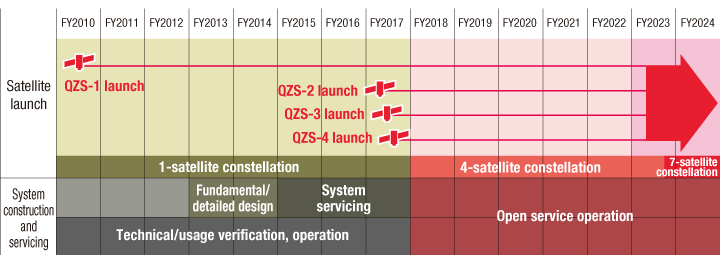Apple has refreshed technical specifications for iPhone 7 and iPhone 7 Plus on its Japanese website to reflect that the latest handsets support Quasi Zenith Satellite System (QZSS), a Japanese GPS-like satellite positioning service nicknamed “Michibiki,” as first reported by the Japanese blog Mac Otakara.
Additionally, the website for QZSS states that the GPS radio inside Apple Watch Series 2 units sold in Japan supports QZSS, too.
In addition to GPS, iPhone 7 supports Global Navigation Satellite System (GLONASS), a space-based satellite navigation system used by the Russian Aerospace Defense Forces. GLONASS provides an alternative to GPS and is the second alternative navigational system in operation with global coverage and of comparable precision.
QZSS is interoperable with GPS and complements the American Global Positioning System (GPS) for a satellite positioning service that is more precise and stable. The system relies on satellites in quasi-zenith orbits (QZO), hence the name.
QZSS currently uses a single satellite, with more to come soon.
GPS systems typically require eight or more satellites for precise positioning. However, as some of these satellites cannot be seen on the reverse side of the globe, only six satellites are constantly visible at a given location.
When QZSS becomes a four-satellite constellation in 2018, three satellites will be visible at all times from locations in the Asia-Oceania regions, said the company. A seven-satellite constellation will be established in the future to help improve coverage in urban areas and mountainous regions.
QZSS can be used in conjunction with the traditional GPS, bringing the number of satellites to eight or more (six GPS satellites and three QZS), which allows for high-precision positioning.
Only iPhone 7 and Apple Watch Series 2 units sold in Japan support QZSS.
Source: Mac Otakara (Google Translate)

